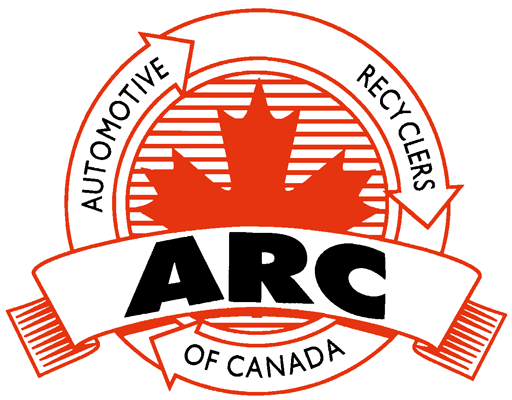On December 20, 2011 the CSPA, along with the Canadian Vehicle Manufacturers Association (CVMA), issued a press release to commemorate a major milestone in the “Switch Out” program. Under this program, the CSPA and CVMA co-fund the removal of mercury switches from end-of-life vehicle bodies. This is done in an environmentally responsible manner, in a process which Summerhill Impact manages on our behalf. The milestone was to mark the collection and safe management of 500,000 such switches since 2001.nnThe removal of mercury from these vehicles is a form of pollution prevention that meets the requirements of environmental regulators at the federal government level, and increasingly is recognized at the provincial level too. This is important because automotive “shred” – the cut-up remains of old automobiles, is a primary ingredient in steelmaking. Scrap steel from many sources is continuously remelted in Canada to produce high-quality recycled steel that has so many everyday uses – rebar and beams for buildings, autoparts, and steel pipe to name a few. Canada’s steel industry recycles 7-8 million tonnes of steel annually — roughly equivalent to the steel in 7-8 million cars. This removes the physical eyesore of scrap vehicles, and greatly reduces the use of new resources (iron ore, coal and others) necessary to make ‘virgin’ steel.nnRemoving mercury switches from steel scrap means that the mercury doesn’t make it into the remelting process in steel mills, where the mercury could otherwise be vaporized and emitted into the atmosphere. Switch removal is the best means — simple, effective, and economical — to achieve this environmental goal.nnIt was certainly essential to start with auto scrap, by far the primary source of recycled steel, since some models of vehicles manufactured several years ago employed mercury switches for convenience lighting and ABS sensor modules. Removing these switches was the scope of the regulatory requirement established by the federal government, and one that Switch Out addresses effectively. But there are other sources of mercury switches in the overall scrap stream, including appliances like your beer fridge and that old freezer in your basement. They may continue to serve you well at present, but eventually they will give out and enter the scrap stream.nnSo beyond the scope of Switch Out, our industry –Canada’s steel producers – has voluntarily gone further than the regulations require. In 2009, the CSPA adopted what we call the “zero mercury” policy, under which member companies have established scrap purchasing policies at the facility level to require their scrap suppliers to deliver mercury-free scrap. The environmental benefit of doing so is obvious.nnBecause scrap suppliers are not required by official regulation to remove the switches, this remains a voluntary program that CSPA members lead. Different facilities implement it according to local circumstances, through a variety of means including:n
- n
- Working to inform suppliers about the importance of supplying mercury-free scrap
- Cancellation of scrap steel orders that do not meet the requirements of the policy
- Auditing of suppliers to ensure compliance
- Reviewing participation in Switch Out to identify scrap suppliers that may not be fully complying with the zero mercury policy
- Requiring suppliers to attest in writing that they comply with the program
n
n
n
n
n
nAs part of CSPA’s ongoing commitment to the zero mercury objective, our member companies will continue to work with their steel scrap supply chain partners to ensure maximum possible compliance with the zero mercury policy. We think the vast majority of suppliers want to do the ‘right thing’, and we want to work with those that do.nnTogether, the participants in the scrap supply system contribute to a sounder environment, and to the sustainable success ofCanada’s steel industry. A voluntary zero mercury policy – just one more way that steel makes Canada stronger.nn- Ron Watkins, CSPA Blog
